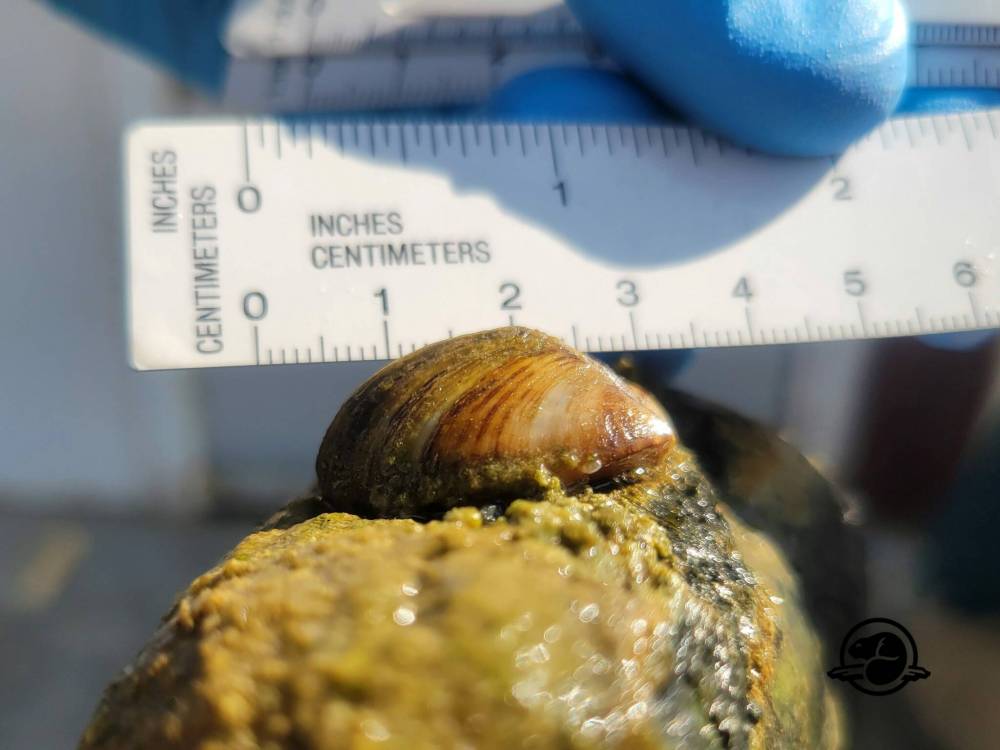Pesticide a possible Parks Canada weapon in war on Clear Lake zebra mussel invasion
Advertisement
Read this article for free:
or
Already have an account? Log in here »
To continue reading, please subscribe:
Monthly Digital Subscription
$0 for the first 4 weeks*
- Enjoy unlimited reading on winnipegfreepress.com
- Read the E-Edition, our digital replica newspaper
- Access News Break, our award-winning app
- Play interactive puzzles
*No charge for 4 weeks then price increases to the regular rate of $19.00 plus GST every four weeks. Offer available to new and qualified returning subscribers only. Cancel any time.
Monthly Digital Subscription
$4.75/week*
- Enjoy unlimited reading on winnipegfreepress.com
- Read the E-Edition, our digital replica newspaper
- Access News Break, our award-winning app
- Play interactive puzzles
*Billed as $19 plus GST every four weeks. Cancel any time.
To continue reading, please subscribe:
Add Free Press access to your Brandon Sun subscription for only an additional
$1 for the first 4 weeks*
*Your next subscription payment will increase by $1.00 and you will be charged $16.99 plus GST for four weeks. After four weeks, your payment will increase to $23.99 plus GST every four weeks.
Read unlimited articles for free today:
or
Already have an account? Log in here »
Hey there, time traveller!
This article was published 24/07/2024 (479 days ago), so information in it may no longer be current.
Parks Canada says it will wait on the results of more extensive testing before it decides whether to treat Clear Lake with a pesticide to eradicate zebra mussels.
Last week, the federal agency announced staff found one adult zebra mussel and a partial shell at the main boat cove in Riding Mountain National Park’s most popular lake. Water samples taken from the area also indicated zebra mussel DNA in the area. Parks Canada said the evidence “shows zebra mussels are building a presence” in the lake.
During a technical briefing Wednesday, the agency said it will install an impermeable curtain — the first portion of which arrived in Wasagaming Monday — from Boat Cove to the pier in an effort to contain the invasive mussels. The curtain is expected to be installed within the next week.

SUPPLIED PHOTO / PARKS CANADA
A zebra mussel found during an inspection in Clear Lake.Parks Canada is considering applying a potash solution to eradicate the mussels, but will not make a final decision until it has collected more data on the extent of zebra mussel spread in the lake.
“It would not be prudent to treat the whole lake, that is not something we are considering,” said Dameon Wall, external relations manager for Riding Mountain National Park.
Parks Canada has completed “extensive testing” for mussel DNA and larvae in high-risk areas of the lake, including the marina, east end boat launch, North Shore cottages, western shoreline camp access sites, day use areas and Frith Beach. So far, staff believe the infestation is contained to Boat Cove. If test results show evidence of mussels in other parts of the lake, Wall said, it may not be feasible to eradicate the invasive species.
Health Canada approved potash as an effective pesticide for zebra mussels in 2022. Parks Canada staff said they do not anticipate any negative effects to people or other wildlife as a result of potash treatment.
Portions of Lake Winnipeg were treated with a potash solution in 2014. While the pesticide temporarily eradicated mollusks in four harbours, the mussels had already spread to other portions of the lake, rendering the treatment ineffective.

julia-simone.rutgers@freepress.mb.ca

Julia-Simone Rutgers is the Manitoba environment reporter for the Free Press and The Narwhal. She joined the Free Press in 2020, after completing a journalism degree at the University of King’s College in Halifax, and took on the environment beat in 2022. Read more about Julia-Simone.
Julia-Simone’s role is part of a partnership with The Narwhal, funded by the Winnipeg Foundation. Every piece of reporting Julia-Simone produces is reviewed by an editing team before it is posted online or published in print — part of the Free Press‘s tradition, since 1872, of producing reliable independent journalism. Read more about Free Press’s history and mandate, and learn how our newsroom operates.
Our newsroom depends on a growing audience of readers to power our journalism. If you are not a paid reader, please consider becoming a subscriber.
Our newsroom depends on its audience of readers to power our journalism. Thank you for your support.









